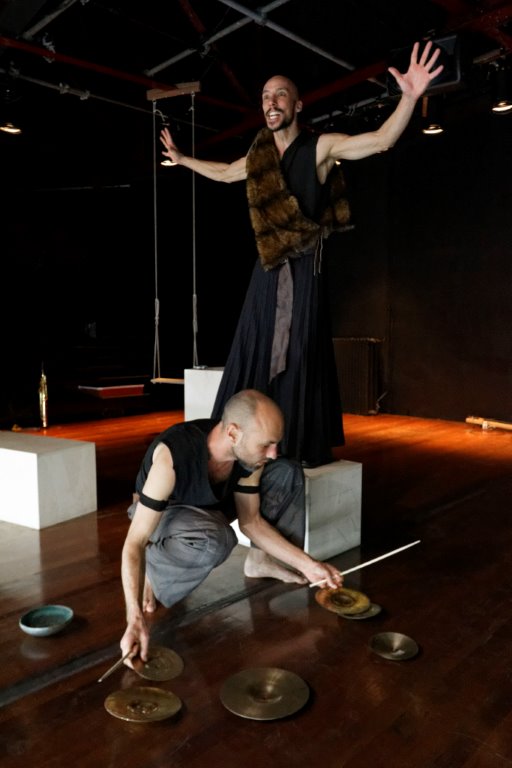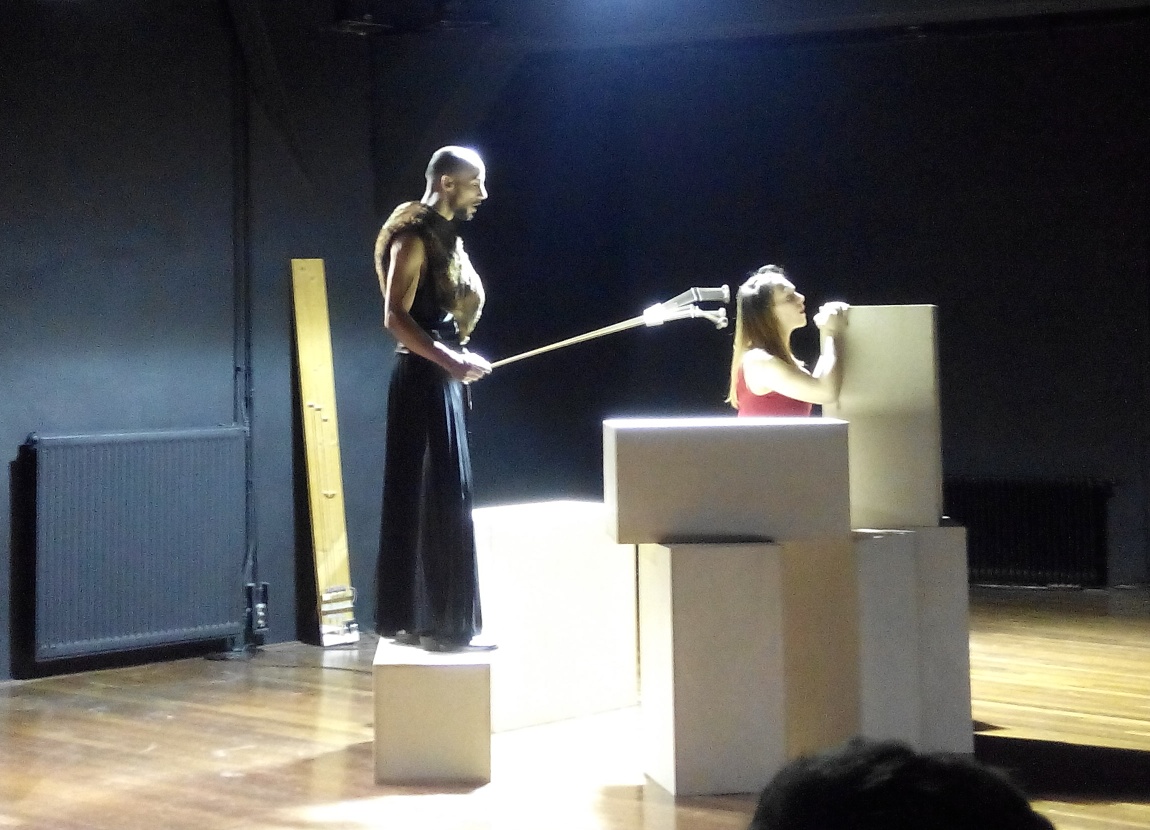Zaterdag 6 december start de eerste editie van de Muziektheaterdagen, de opvolger van het jaarlijkse Babelfestival. Om het werk van jonge makers te presenteren sloegen het Ostadetheater en productiekern Diamond factory opnieuw de handen ineen, voor een programma dat naast wereldpremières van professionele makers flitsoptredens biedt van conservatoriumstudenten. Ook vindt de maandelijkse Salon van Splendor plaats in het Ostadetheater. Rode draad in deze eerste editie vormen ‘de utopieën en dromen uit de jaren zestig en zeventig, die door de makers tegen een nieuw licht worden gehouden’.
Het festival opent op 6 december met Sisters, een nieuw werk van componist Anna Mikhailova en librettist/regisseur Isabel Schröder. Mikhailova maakte twee jaar geleden voor het Babelfestival de eenakter Black Perfume, naar een verhaal van Michail Boelgakov. Sisters is geïnspireerd op de Griekse mythe van Philomèla, de Atheense koningsdochter die door haar zwager Tereus verkracht wordt, en samen met haar zus Proknè op gruwelijke wijze wraak neemt: zij zetten hem zijn zoontje Itys te eten voor. Wanneer hij ontdekt wat er gebeurd is zet Tereus de achtervolging in, waarna ze alle drie in vogels veranderen.
Sisters opent sterk. Drie mannen en twee vrouwen stormen het podium op en bevriezen in een gedecideerde houding, onderwijl recht het publiek inkijkend. Tereus (de acteur Fabian Holle), getooid met zwarte plooirok en berevel staat in het midden; de felrood geklede Philomèla (de mezzosopraan Merlijn Runia) zit geheel rechts; haar in een knalblauwe jurk gestoken zus Proknè (mezzosopraan Antje Lohse) uiterst links. Slagwerker Robbert van Hulzen en saxofonist Stefan de Wijs – eveneens in het zwart – bevinden zich aan de kant van Proknè.
Ook de openingsmuziek is overrompelend. Een vanuit het niets aanrollende elektronische reutelklank wordt ongemerkt overgenomen door de vijf uitvoerders: zij produceren met trillende tong een laag grommende vocaal en slaan daarbij op trommels (de mannen), of klakken met hun hakken (de vrouwen). Gaandeweg wordt het lawaai oorverdovend. Dan horen we een rauwe strijdkreet, geslaakt door de in het publiek geplaceerde Itys (Bettino Weisser). Hierop volgen minutenlang oorlogszuchtige uitroepen, gescandeerd in een house-ritme: ‘I went to war and I killed Floran!’ Het is duidelijk: dit gaat niet goed aflopen.

In de hierop volgende scènes zien we de twee zussen onbevangen verstoppertje spelen, schommelen, of hun omgeving aftasten middels het spelletje ‘je handen zijn je ogen’. Onderwijl roffelen ze sfeervolle klanken op witte, over het podium verspreide kubussen. Soms zingen zij lyrische aria’s, die door de reciterende schrijfstijl goed verstaanbaar zijn. Vaak ook vertellen zij sprekend het verhaal, waarbij ze even uit de handeling treden, zoals het koor doet in de klassieke Griekse tragedies. Ook Tereus wisselt tussen een handelend naar een beschouwend personage, wat geen moment gekunsteld overkomt.
Een en ander wordt spaarzaam ingekleurd door melodische, dan weer rauwe uithalen van de saxofonist en dito percussie. Mooi zijn de momenten waarop de slagwerker arcadische sferen oproept door op de grond geplaatste bekkentjes zachtjes te laten tinkelen. Sfeervol zijn ook de houtje-touwtje elektronische instrumenten, die voornamelijk door de twee zussen worden bespeeld en die wonderlijk genoeg eerder archaïsche dan moderne klanken voortbrengen.
Indrukwekkend is de concentratie en inzet waarmee de uitvoerders hun rollen vertolken. Vooral Lohse en Runia nagelen je met hun ingeleefde spel aan je stoel. Holle is een zeer vervaarlijke Tereus, maar verliest momentum door zijn slechte uitspraak van het Engels. Saxofonist De Wijs moet nog leren zich op een podium te bewegen, net als de jonge Weisser. Jammer ook dat de verkrachtingsscène eruit ziet alsof Tereus en Philomèla een onschuldig spelletje doen. Het kwartje valt pas als zij haar klaaglied aanheft, maar dit is letterlijk adembenemend: de kokhalzende keelklanken die Runia uitstoot maken bijna tastbaar dat Tereus de tong van Philomèla heeft afgesneden en doen je onwillekeurig naar je strot grijpen.

Het moment waarop de twee zussen besluiten wraak te nemen, blijft nog wat in het ongewisse, maar pakkend is het slot, waarin Philomèla, Proknè en Tereus veranderen in vogels. Gehurkt op een kubus staren zij naar de hemel, terwijl uit koffergrammofoons opgewekt vogelgekwetter linkt. De wraak van Tereus lijkt door de goden afgewend. Hoewel niet geheel duidelijk is hoe hun stuk in de thematiek van de Muziektheaterdagen past en de voorstelling nog wat bijgeschaafd moet worden, weten Mikhailova en Schröder met Sisters beslist een snaar te raken.
Sisters is nog te zien tot en met dinsdag 9 december.
Anna Mikhailova en Isabel Schröder: Sisters; Antje Lohse en Merlijn Runia, mezzosopraan; Fabian Holle, acteur; Bettino Weisser, zang; Stefan de Wijs, saxofoons; Robbert van Hulzen, slagwerk; Judith de Zwart, kostuums; Loek Vellekoop & Phonophilia, el. instrumenten; Jose Warmerdam, lichtontwerp; Sybren Danz, geluidsontwerp.
